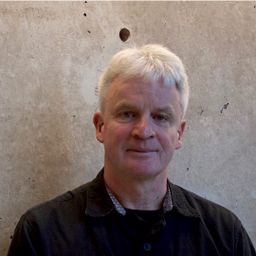
Steven Mannell, NSAA, FRAIC, is founding Director of Dalhousie University's international award-winning College of Sustainability, and led the College from 2008 to 2020. He is a practicing architect and Professor of Architecture. His research includes waterworks architecture and engineering, the conservation of modern built heritage, lightweight construction techniques, and the late 20th century emergence of “ecological” architecture. He is curator and author of Atlantic Modern: The Architecture of the Atlantic Provinces 1950-2000 (2001) and Living Lightly on the Earth: Building an Ark for Prince Edward Island 1974-76 (2016). His recent chapter “Environmental Architecture” (in Lam & Livesay, Canadian Modern Architecture, 2019) examines the origins, development, and potentials of sustainable built environments in Canada. He is currently expanding this study with a focus on the intersections of design and social movements.
Sessions auxquelles Prof. Steven Mannell participe
Mardi 7 Juin, 2016
The 1970s witnessed a flourishing of living experiments in space, place and community sharing broad ambitions to bring about transformed human social and interpersonal conditions, to re-envision relationships between people and the environment and ecology of their habitats, and to reject a growing mainstream vision of people as passive consumers in favour of a role as creative and adventurous agents of their own destinies. While some expressions of these experiments were non-spatial or intend...
Sessions auxquelles Prof. Steven Mannell assiste
Dimanche 5 Juin, 2016
Directed by Tom Fassaert and presented by Marc Jacobs. ___ Doel, a Belgian village near the Dutch border, is disappearing quickly and deliberately. Not because of the four old nuclear reactors on its territory, but because the Flemish government decided that the village might block projects for new docks for the Antwerp harbour, plans developed since the 1960s. In the 21st century this process of officially encouraged depopulation is coming to an end: 2500 inhabitants i...
Lundi 6 Juin, 2016
As Canada shifts from a resource-based economy to a knowledge-based economy, small communities that were established to service the primary sector are faced with a complex and unique set of challenges. They are communities built on a culture of hard work, resourcefulness, and creativity; their residents are now tasked with developing strategies to deal with a lack of employment, depopulation and resettlement. Small is premised on the notion that leveraging the rich cultur...
This proposal makes the case that heritage’s capacity for change may be dependent on a paradigm shift in how heritage is interpreted. With this paradigm shift in play, a question is then asked: Can authenticity be used as a design driver to resolve how best to incorporate the four pillars of sustainability in a building’s design? The proposal begins with a discussion about the difference between using heritage reactively and proactively. It then presents a brief introduction to the...
Le patrimoine fait aujourd’hui l’objet d’attentions autant que d’agressions et de destructions. Cela peut s’expliquer par les difficultés de son identification ou de sa conservation. Cela peut plus profondément s’expliquer parce que, dès le départ, il célébre un événement ou conserve une mémoire qui peut être ou devenir une source de dissenssions et de conflits politiques. Enfin, sa reconnaissance suscite des gains économiques pour les uns mais des pertes pour les autres. Mais peut-être...
To celebrate our film series dedicated to heritage, sponsored by the Department of American Studies at the University of Maryland and the United States Chapter of the Association of Critical Heritage Studies, this event will spotlight the iconic Sugar Shack, which is rooted from Quebec to New-England and which is both the place of maple syrup production and of friendly gatherings during the maple syrup season. In a festive atmosphere, delegates will be invited to taste one of the essential of...
Mardi 7 Juin, 2016
(en français) Le centre-ville a été au cœur de nombreuses luttes depuis les années 1970. Le parcours proposé par Martin Drouin, historien, professeur au département d’études urbaines et touristiques de l’Université du Québec à Montréal, présentera quelques combats qui ont marqué la scène patrimoniale et transformé le paysage urbain montréalais. _ Downtown Montreal has been at the centre of numerous struggles since the 1970’s. The itinerary proposed by Martin Drouin, historia...
In November 2014, artists and thinkers including Jimmie Durham, Michael Taussig, Rebecca Belmore and Paul Chaat Smith convened in Calgary and Saskatoon for “Stronger than stone: (Re)Inventing the Indigenous Monument,” an international symposium which served to foreground the most critical issues facing Indigenous memory-making and cultural preservation today. Propositions for new types of monuments (or anti- monuments in many cases) were made that were specific to the Indigenous worldview and...
The closing dinner of the conference, called “Pawâ” according to a French-Canadian tradition borrowed from the Native American lexicon, will be an opportunity to discover, in the heart of the Old Port of Montreal, an original culinary creation by the caterer Agnus Dei, from the renowned Maison Cartier-Besson in Montreal, leader in its field for its boundless creativity and event expertise. The dinner, in the form of stations, will offer delegates an exploration of Quebecois culinary heritage,...




